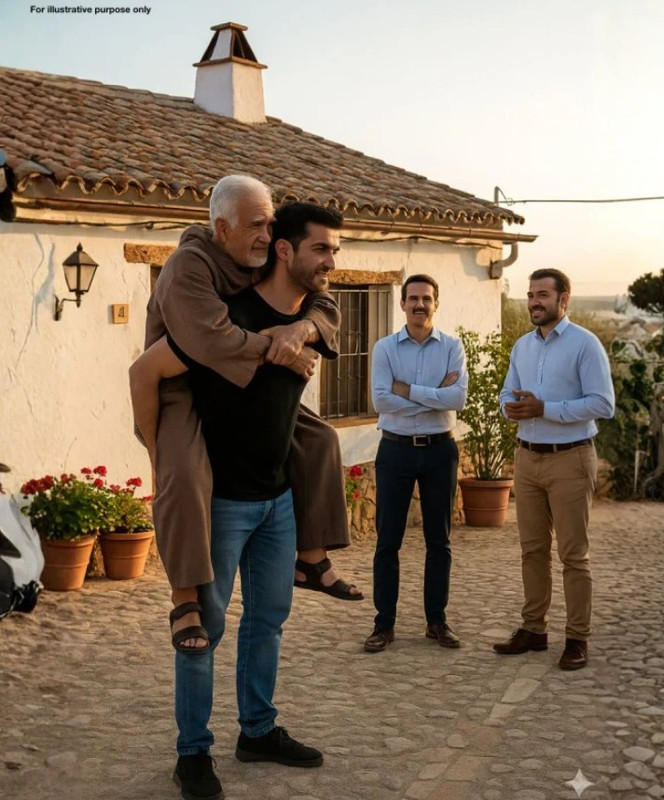A father’s quiet request
When Father Ramon came home from the hospital, he looked fragile but peaceful. On the dining table, he placed an old sheet of paper—a 900,000-peso promissory note. His voice trembled as he said, “This is my debt. I borrowed it for my treatment. I can’t work anymore. Could one of you help me pay it back?”
His three sons—Rico, Julius, and Miguel—sat in silence.
Rico, the eldest, lowered his gaze. “Dad, I still have tuition to pay for my daughter in Manila.”
Julius shifted uneasily. “I just opened a store. My savings are gone.”
Only the youngest, Miguel, met his father’s eyes. “I’ll take care of it, Father,” he said without hesitation.
Ramon was taken aback. “You already have debts, son—your house, your wife’s business.”
Miguel smiled. “Money can always return. A father doesn’t.”
The son’s sacrifice
From that day forward, Miguel brought his father to live with him in a modest home in Quezon City. He took extra work—construction by day, truck deliveries by night. Life was difficult, but love made it bearable.
His wife, Anna, sold her motorcycle to open a small café. Though exhausted, she never complained. Each evening, she served her father-in-law warm food and kind words.
Even in weakness, Father Ramon found ways to help. He cooked porridge in the mornings, swept the yard, and watered plants. He would smile and say, “You remind me of your mother—gentle but strong.”
A year later—an unexpected truth
One quiet July morning, Ramon called Miguel into his room. “Sit down, son,” he said softly, handing him a folded paper. “Read this.”
Miguel opened it and froze. It wasn’t a debt document. It was a land title—a 500-square-meter property along the main road in Antipolo. His name, Miguel R. Dela Cruz, was written clearly.
“Father… what is this?” he asked, his voice shaking.
Ramon smiled faintly. “I bought that land twenty years ago. When you said you’d help me with my ‘debt,’ I transferred it to your name. The 900,000 pesos was never real—it was a test of heart.”
Love that can’t be measured in money
For months, Miguel had compared himself to his brothers who lived comfortably while he struggled. Now, tears filled his eyes as he realized what his father had done. It was never about money. It was about love, patience, and gratitude.
Ramon’s voice was calm. “Son, you can always earn money again. But love—once lost—can never return.”
Miguel wept, holding his father’s frail hand. “I don’t want the land, Father. I just want you.”
Ramon smiled. “Being a good son is the richest inheritance I can leave.”
The legacy of Casa Ramon
A year later, Father Ramon passed away peacefully in his sleep. On the altar beside his photo rested the land title—a silent record of devotion between a father and son.
Miguel never sold the land. Instead, he built a small home called Casa Ramon, offering free skills training to underprivileged youth. The place became a symbol of love, family, and the unbreakable bond that health, hardship, and time could never destroy.
Conclusion
This story isn’t just about a 900,000-peso note—it’s about a father’s wisdom and a son’s devotion. Miguel learned that the greatest measure of success isn’t wealth or status, but the love we give and receive within our family.
In the record of life, the highest achievement isn’t the money we earn—it’s the heart we keep.
